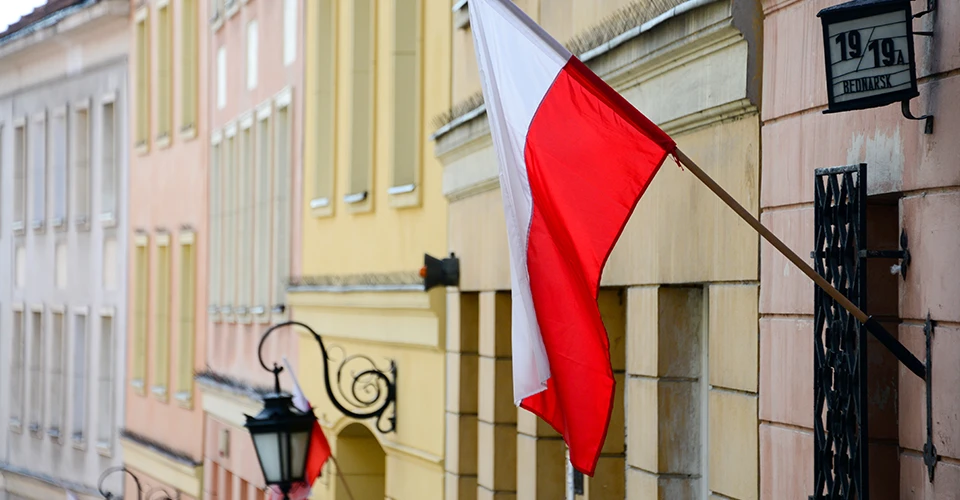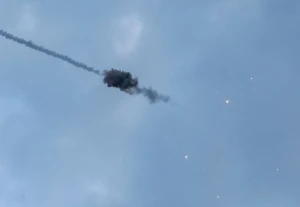
Grain imports from Ukraine to be discussed at meeting of EU ambassadors at Poland's request
At the request of Poland, a meeting of ambassadors of 27 EU member states will be organized in Brussels on Wednesday, September 27: to discuss grain imports from Ukraine.
PolskieRadio reports.
It is noted that the discussion will also address the challenges of the common agricultural policy.
"We want this process to be transparent and to involve all 27 EU member states," said Polish Ambassador to the EU Andrzej Sados.
In addition, after the meeting at the ambassadorial level, it is planned to organize a meeting at the level of ministers of the EU member states. According to Poland, a condition for Ukraine's participation in these talks should be that Kyiv withdraws its complaint to the World Trade Organization (WTO).
According to some EU diplomats, if the WTO starts considering this case, the possibility of resolving the issue through dialogue will disappear.
Details regarding ban on Ukraine grain imports
On February 2, Polish farmers began blocking checkpoints on the border with Ukraine. They were outraged that the uncontrolled inflow of Ukrainian grain to Poland had caused prices for their products to plummet. Local farmers argue that Ukrainian grain should have been transported through Poland only to ports, but it ended up on the Polish market.
On March 29, Polish Prime Minister Morawiecki said that Poland promised to introduce rules that would limit the inflow of Ukrainian grain to the country, explaining that it could destabilize the import market.
On April 7, Ukraine agreed to stop exporting grain to Poland, and on April 15, the country approved a ban on the import of Ukrainian grain and other food products to Poland. Later, Poland approved a ban on the import of Ukrainian grain and other food products to Poland. The government emphasized that this decision does not change the country's position on support and friendship with Ukraine.
On April 17, Slovakia became the third EU country to ban imports of Ukrainian grain and other agricultural products.
On May 12, Poland, Bulgaria, Romania, Slovakia, and Hungary called on the European Commission to extend the embargo on agricultural products from Ukraine until the end of the year. Later that month, it was reported that four EU countries would insist on extending grain import restrictions from Ukraine until October. At the same time, Hungary wanted to extend the restrictions until 2024.
On August 24, it was revealed that Hungary requested an extension of the EU's ban on Ukrainian grain imports.
Following this, Poland's Minister of Agriculture, Robert Telus, stated that Poland would also urge the European Union to extend the ban on Ukrainian grain imports. If the EU refuses, Poland would consider implementing its own restrictions. He noted that Slovakia, Bulgaria, Romania, and Hungary had similar intentions.
On Friday, September 15, the European Commission decided not to extend the ban on Ukrainian grain exports to the EU: Poland, Hungary, and Slovakia announced that they would extend the embargo unilaterally.
On September 19, Prime Minister Denys Shmyhal said that Ukraine will file a lawsuit with the World Trade Organization and may retaliate by banning imports of goods from Poland, Hungary, and Slovakia. The next day, Polish President Andrzej Duda criticized Ukraine's actions regarding the Polish embargo on Ukrainian grain and said that he and his government would defend the interests of Polish farmers.
Polish Prime Minister Mateusz Morawiecki also reacted to Ukrainian President Volodymyr Zelenskyy's speech at the UN General Assembly and announced a possible extension of the ban on food exports if Kyiv continues to "escalate the conflict."
On September 20, Ukraine's Ambassador Vasyl Zvarych was summoned to the Polish Foreign Ministry over Zelenskyy's statements that some countries' blocking of grain exports was in Russia's favor.
At the same time, Andrzej Duda expressed regret over Zelenskyy's words about agricultural products and the ban on Ukrainian grain imposed by three EU countries and said that the transit of Ukrainian grain through Poland continues.
The Polish president also said that he did not believe that a minor dispute between Ukraine and his country over Ukrainian agricultural imports could undo all the achievements of Polish-Ukrainian relations.
The Visegrad Group, which includes Poland, the Czech Republic, Hungary, and Slovakia, called on Ukraine to withdraw its complaint to the WTO over the restriction on Ukrainian grain imports. According to the countries, this will improve the "atmosphere in relations" between the states.
- News













































